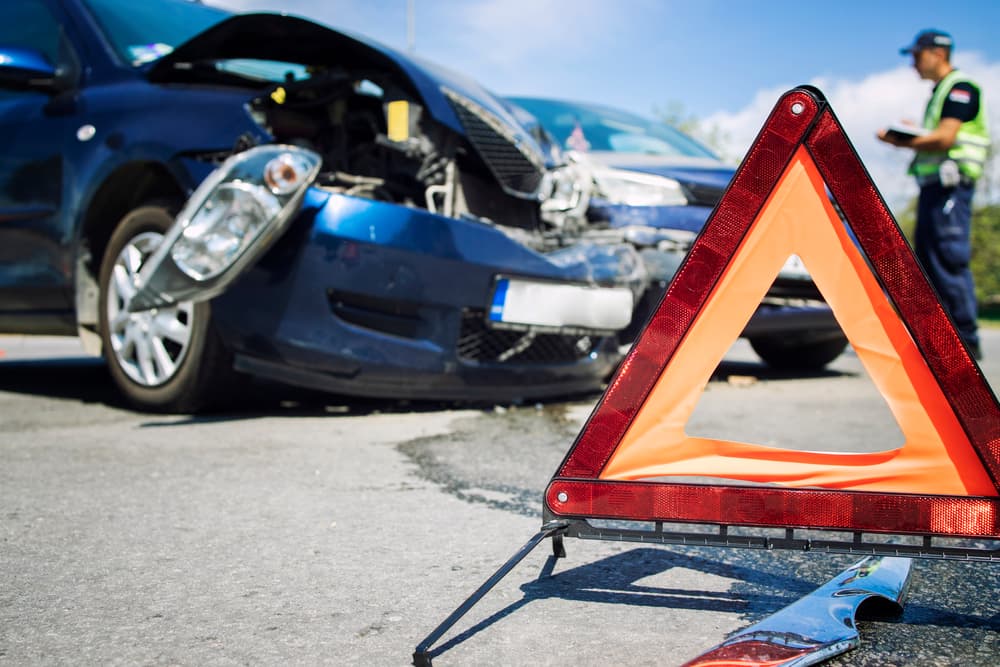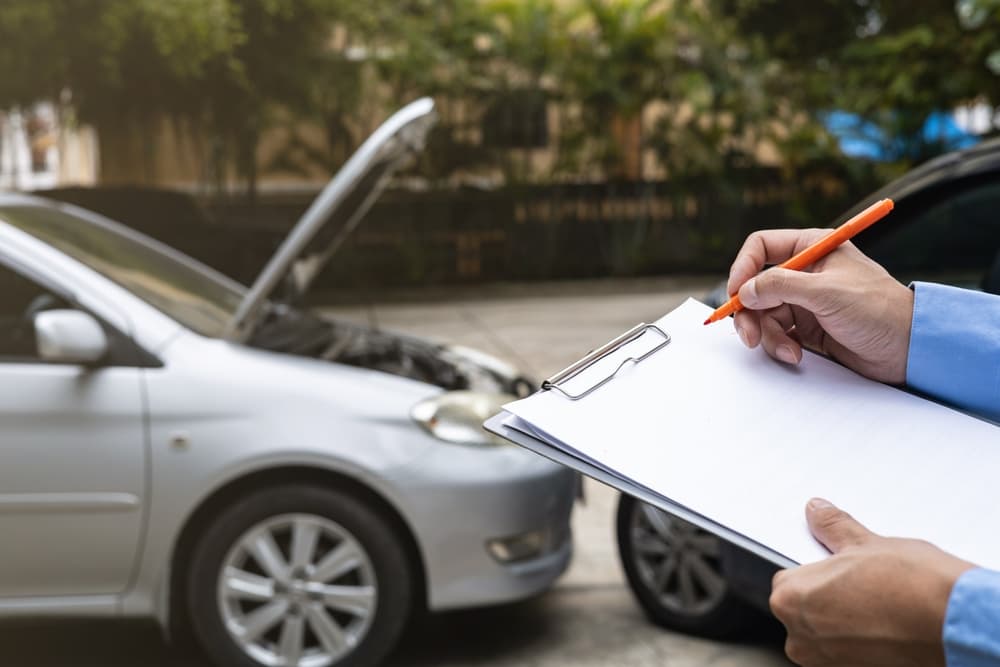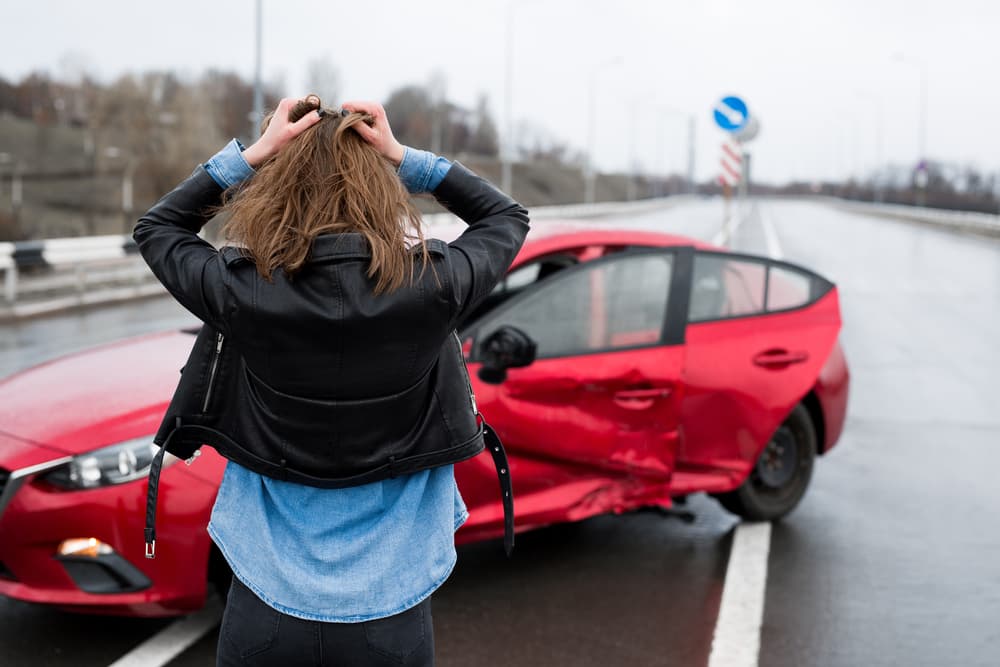You need to know your rights and options when picking up the pieces after a car accident. One of the key pieces of documentation often associated with car accidents is a police report. But what happens if you don't have a police report? Can you still make a claim? This blog post will explore the answer to this question and provide valuable insights for car accident victims and their families.
Whether or not you filed a police report, it's always in your best interest to consult an experienced car accident attorney after being involved in a crash.
Reach Out Today!
What Does a Police Report Include in a Car Accident?
When you are involved in a car accident, one of the most important documents that are typically generated is a police report. This report serves as an official record of the accident. It contains vital information that can be crucial if you decide to file a claim. Understanding what a police report includes can give you a clearer understanding of its significance and help you navigate the post-accident process more effectively.

The police report will provide detailed information about the accident, including the date, time, and location. It will also include the names and contact information of the parties involved and any witnesses. It should also include witness accounts of the accident and their contact information. This information is essential for establishing the facts of the case and can be helpful when it comes to identifying potential witnesses or obtaining statements from them.
Additionally, the report will contain a narrative description of the accident written by the reporting law enforcement officer. This description will outline the events leading up to the accident, details of the collision, and any other relevant information that the investigating officer deems essential. The narrative may include factors such as road conditions, weather conditions, and any traffic violations or other contributing factors that may have played a role in the accident.
The police report will also include a diagram or sketch of the accident scene. This diagram will typically show the vehicles' position, any damage to the vehicles, and other relevant details, such as traffic signs or signals. Having a visual representation of the accident scene can be beneficial in understanding how the accident occurred and can aid in establishing liability.
Furthermore, the police report will often include the officer's determination of fault. This determination is based on the officer's assessment of the facts and evidence gathered at the scene. While the officer's determination is not conclusive or binding, it can carry significant weight when it comes to negotiating with insurance companies or presenting your case in court.
The Importance of a Police Report
Before we dive into whether it's possible to claim a car accident without a police report, let's discuss why a police report is crucial in the first place. When law enforcement arrives at the scene of an accident, they gather essential information, such as the parties involved, witness statements, and a detailed description of the accident. This report serves as an official incident record, which can significantly affect the claims process.
The police report provides an unbiased account of the accident and can help determine liability. Insurance companies rely on this report to assess the damages and determine the appropriate compensation for the parties involved. Without a police report, it can be challenging to establish the facts surrounding the accident, making it harder to pursue a claim.
Filing an Insurance Claim Without a Police Report
While a police report can be helpful, filing an insurance claim for a car accident is not always required. In cases where the accident involves minor damage and no injuries, you can usually proceed with your claim without a police report. However, the absence of a police report may make it more challenging to prove fault or establish the extent of your damages.
Importance of Gathering Evidence
If you find yourself in a situation where you need to claim a car accident without a police report, it becomes even more crucial to gather evidence to support your case. Depending on the circumstances of your accident, you may or may be unable to take the following actions, but if you can, they are helpful in the absence of a police report:
- Start by taking photos and videos of the accident scene, capturing the damages to the vehicles and the surrounding environment.
- Collect the contact information of any witnesses at the scene, as their testimonies can strengthen your claim.
- Gather relevant information about the other parties involved, such as their insurance and vehicle details.
The Role of a Car Accident Attorney
The challenges of a car accident claim can be overwhelming, especially without a police report. Consulting a skilled car accident attorney can provide you with reliable guidance and assistance throughout the process. An attorney can help you gather the necessary evidence, build a strong case, and negotiate with the insurance companies on your behalf.
Police Reports and Court Admissibility

A police report fails to legitimize nor delegitimize whatever damages occurred in a car accident. It is simply a report of what did happen that can be used as testimony in a lawsuit in some jurisdictions.
While a police report is not required to file an insurance claim, many people are surprised to learn that it may not be admissible as evidence in court. Each jurisdiction has its own rules regarding the admissibility of police reports. In some cases, they may be considered hearsay. Instead, you may need to rely on witness testimonies, expert opinions, and other forms of evidence to prove your case in court.
The Statute of Limitations
Regardless of whether you have a police report, be aware of the statute of limitations for filing a lawsuit after a car accident. In most states, the statute of limitations is two years from the accident date. Failing to file a lawsuit within this timeframe can result in losing your right to seek compensation for your injuries and damages. Consulting a car accident attorney can ensure you meet all the necessary deadlines and protect your legal rights.
Exceptions to the Rule
While having a police report is highly beneficial, it's not an absolute requirement for making a car accident claim. There are situations where you can still proceed with a claim, even without a police report. Let's explore some of these exceptions:
Minor Accidents
In some jurisdictions, if the accident is minor and doesn't involve any significant injuries or extensive property damage, the police may not respond to the scene. The involved parties can exchange information and file reports with their respective insurance companies in such cases. Document the accident by taking photos, noting the details, and obtaining witness statements, which can help support your claim.
Hit-and-Run Accidents
Suppose you are the victim of a hit-and-run accident where the other party flees the scene without providing their information. In that case, it's still possible to make a claim without a police report. In these instances, reporting the incident to your insurance company immediately is critical. Ideally, your car accident lawyer should handle this notification, as they should handle any insurance communications. They can provide as much information as possible, such as the license plate number, description of the vehicle, and witness statements. The insurance company will investigate liability and may accept a claim even without a police report.
Delayed Reporting
In some situations, you may not realize the extent of your injuries or damages immediately after the accident. Suppose you don't report the accident to the police right away but later seek medical attention and decide to file a claim. In that case, you can still proceed without a police report. However, you should still inform your insurance company promptly and provide any supporting evidence, such as medical records, photographs, and witness statements.
"Accident Alert"
Some jurisdictions will go on "accident alert" from time to time. This typically occurs when a particular jurisdiction is experiencing bad weather, poor road conditions, and many accidents or when law enforcement is busy with other emergencies. In these cases, the law usually states that if no one suffers an injury, the parties to the accident should move their vehicles from traffic and exchange contact and insurance information. Then, they can later file a police report online. No law enforcement officers will come to the scene, but there will still be some official record of the accident.
While these exceptions exist, having a police report significantly strengthens your case. It's always advisable to contact the police and file a report as soon as possible after an accident, regardless of the severity.
How is Fault Determined in a Car Accident?
Determining who is at fault in a car accident is crucial in the claims process. It helps determine who is responsible for covering the damages and injuries resulting from the accident. So, how is fault determined in a car accident?

In most cases, the determination of fault relies on evidence gathered from the accident scene. This evidence can include police reports, witness statements, photographs, and any available video footage. This information helps insurance companies and attorneys assess the situation and determine who is at fault.
Insurance companies and attorneys consider various factors, such as traffic laws and regulations, when assessing fault. They will examine whether any party involved in the accident violated traffic rules, such as running a red light, speeding, or failing to yield. Additionally, they will analyze the actions of each party leading up to the accident to determine if negligence or recklessness played a role. Sometimes, multiple parties can be at fault for an accident. For example, if a government agency failed to properly place signs in a construction zone and one driver was speeding, they can both be liable for damages in an accident.
The Benefits of Consulting a Car Accident Attorney
Many issues can arise following a car accident when you are pursuing a claim, especially when there's no police report involved. Seeking the guidance of a car accident attorney can make a significant difference in the outcome of your case. Here are some key benefits of consulting an attorney:
Legal Knowledge and Analysis
Car accident attorneys regularly handle these types of cases from start to finish. They possess a deep understanding of the law and can provide a knowledgeable analysis of your situation. An attorney can review the circumstances of the accident, assess the evidence available, and determine the best course of action. They can help you gather additional evidence to support your claim and present a compelling case to the insurance company or in court, if necessary.
Skillful Negotiation
Insurance companies are notorious for minimizing payouts and employing tactics to settle for less than you deserve. An experienced car accident attorney can handle these negotiations and fight for your rights. They can handle all communication with the insurance company on your behalf and work towards securing a fair settlement.
Peace of Mind
Dealing with the aftermath of a car accident, especially when injuries are involved, can be incredibly stressful. Hiring a car accident attorney can alleviate some of that stress. Knowing that you have a knowledgeable professional advocating for your best interests can provide peace of mind during a challenging time.
Contact a Skilled Car Accident Attorney Today
While having a police report is advantageous when making a car accident claim, it's not always a deal-breaker. In certain situations, such as minor accidents, hit-and-run incidents, or delayed reporting, you can still pursue a claim without a police report. However, you should still gather as much evidence as possible and consult a car accident attorney to ensure the best possible outcome.
Remember, when facing the legal system after a car crash, always seek professional guidance. If you or a loved one recently suffered injuries due to another driver, it's always in your best interest to schedule a no-obligation consultation with a skilled personal injury attorney today. They can only benefit your case and you have nothing to lose.